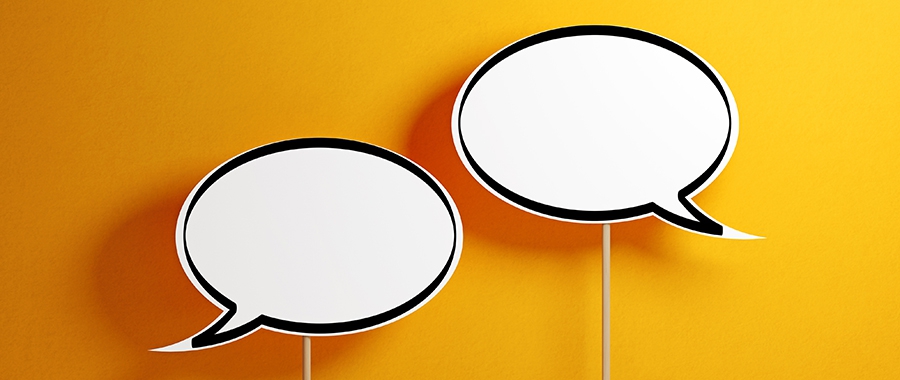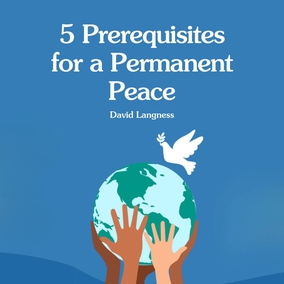The views expressed in our content reflect individual perspectives and do not represent the authoritative views of the Baha'i Faith.
The other day, in a public place with many children present, I heard a man utter some of the foulest profanities I’d heard in quite a while.
The quality of freedom and of its expression—indeed, the very capacity to maintain freedom in a society—undoubtedly depends on the knowledge and training of individuals and on their ability to cope with the challenges of life with equanimity. Having a civil society, in other words, depends on the individual people in that society knowing how to be civil.
The Baha’i teachings say:
Be worthy of the trust of thy neighbor, and look upon him with a bright and friendly face. Be a treasure to the poor, an admonisher to the rich, an answerer to the cry of the needy, a preserver of the sanctity of thy pledge. Be fair in thy judgment, and guarded in thy speech. – Baha’u’llah, Epistle to the Son of the Wolf, p. 93.
The foul-mouthed man I heard—and all those children heard, too—was definitely not being guarded in his speech.
Some people think of using profanity as the ultimate freedom of expression—yet profanity is socially offensive language. Does profanity produce any social good?
Profanity is a subset of a language’s lexicon generally considered to be strongly impolite, rude or offensive. It can debase someone or something, or show intense emotion. Linguistically, in its older, more literal sense, profanity refers to a lack of respect for things held to be sacred, which implies anything inspiring or deserving of reverence.
Do we really need profanity?
Supposedly these profane words add emphasis, but when used to describe people or their actions the words are typically degrading, not only to the hearer but to the speaker. Often they are used to describe someone who doesn’t give us our way, with little consideration of their own constraints. Use of such words to describe someone robs them of their humanity, objectifies them, and relegates them to the status of “thing” instead of living human being with thoughts and feelings like ourselves.
Certain culturally derogative words do the same thing, especially when used by one race to describe another. We learn these words and expressions growing up, hearing and seeing them used in everyday conversation. That’s why modeling is so important for parents and adults in front of children. If we hear our children use such words, it’s our obligation to let them know how offensive they are. Neither should we accept such language ourselves.
My experience is that profanity is used so often among some adults that it has lost its original impact and shock value. I often overhear conversations where certain profane words are interjected as punctuation, in almost every other word. The words are used automatically, without thinking, without consideration, no differently then adding “the” or “and” to a sentence. What then is the speaker trying to emphasize, and doesn’t he understand that his constant verbal stream of foul language debases his own speech?
Bottom line: I believe, as one who once cursed in my teens and young adulthood, using such words is self-degrading. It showed an uncaring attitude on my part, revealed that I wasn’t consciously or courteously thinking about the feelings of others, and lowered my own standing when others heard me use such words.
We don’t need to degrade ourselves or each other. In fact, we should be lifting up each other with courteous words.
Baha’u’llah felt strongly about courtesy:
O people of God! I admonish you to observe courtesy, for above all else it is the prince of virtues. Well is it with him who is illumined with the light of courtesy and is attired with the vesture of uprightness. Whoso is endued with courtesy hath indeed attained a sublime station. – Tablets of Baha’u’llah, p. 88.
Being courteous and not using profanity shows our consideration for every person, and the nobility of their own souls.
Persevere, therefore, with diligence and steadfastness along this path of endeavour. As you do so, strive to perceive the nobility in every human being—rich or poor, man or woman, old or young, city dweller or villager, worker or employer, irrespective of ethnicity or religion. – The Universal House of Justice, 28 July 2008.
I think of the messengers of God, Abdu’l-Baha and others as good examples of making their strong points in considerate language, courteous at all times. Their strongest words, used for emphasis, may be the expressions “God forbid,” or “Heaven forbid.”
I can think of no stronger words to describe how we should feel about using profanity.
















Comments
Sign in or create an account
Continue with Googleor